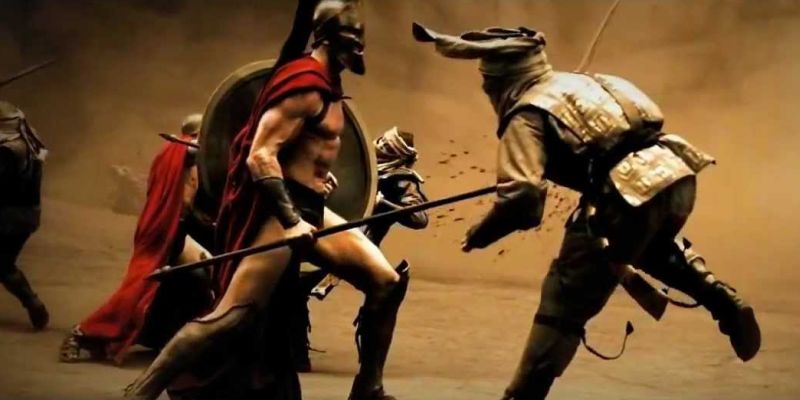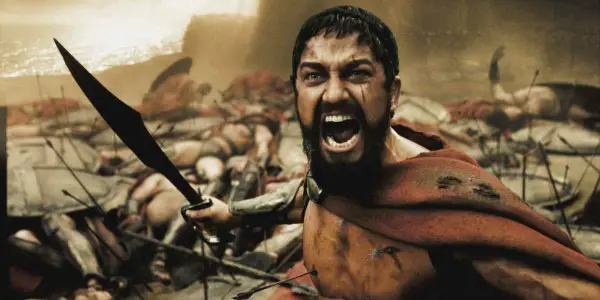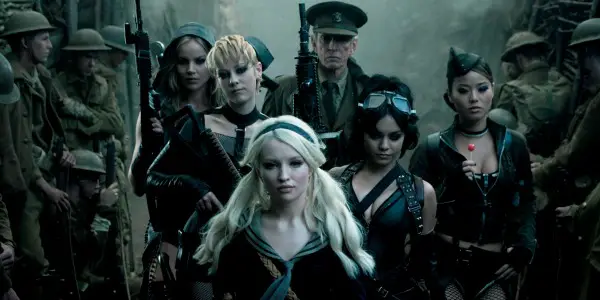Zack Snyder: The Master of Right-Wing Propaganda

Alistair is a 25 year old writer based in Cambridge.…
It has been five weeks since Batman Vs. Superman debuted at cinemas worldwide to a gargantuan opening weekend, followed immediately by toxic word of mouth that has caused the film to fade into irrelevancy even as it is still playing in theatres. The fact it could have potentially derailed Warner Bros.’ hopes for a Marvel-style cinematic universe means future film historians could reasonably cite it as the Heaven’s Gate of caped crusader films – the work of an auteur given too much money to make a project that seems all but designed to alienate audiences.
Because, for better or worse, director Zack Snyder is an auteur. His bleak colour palette and comic book style visuals are present in every frame of his films, making it near impossible for cinema goers to mistake his work for that of anybody else.
Dawn of Justice: Holding A Mirror To 2016 Right-Wing Fears
But Dawn of Justice also makes clear something that may have not been bubbling under the surface exactly, but has gone unmentioned when analysing the director’s work. His Batman takes the justice system into his own, violent hands, whereas his Superman is portrayed as a messianic figure worshipped by millions worldwide.
When the guy who is a stand-in for Christ teams up with a guy who endorses punishing criminals by any means necessary to form a team of superheroes we are inclined to idolise, Snyder is effectively publicising Republican values as a means of heroism. Of course, Batman and Superman are fictional characters who don’t exist in a political spectrum, but for Snyder, they are both superhuman “gods” that are frequently politicised, who the villain wants to kill in order to become more powerful than them.
As Lex Luthor discusses his masterplan to “kill god”, Snyder is positioning his villain as an atheist, somebody who cannot be trusted due to their lack of belief in a higher power informing their evil masterplan. The only other wide release film this year that positioned its villains as untrustworthy atheists was God’s Not Dead 2, a film whose appraisal of core Christian values is playing directly to the Republican demographic.
Arguably, Batman Vs. Superman is more Republican Friendly, specifically to Trump voters; it offers sound bites like the one above about “killing god” as opposed to offering a coherent narrative that offers any logical sense, frequently changing its opinions on a minute by minute basis to appease whatever is happening in the scene surrounding it.

The villains portrayed are either atheist or Middle Eastern, with plenty of recurrent 9/11 referencing imagery in order to portray Superman in equal parts saviour figure and menacing “illegal alien” who causes destruction by coming over to the country. All the female characters are relegated to “damsel in distress” status, feeling as regressive in its attitudes to strong women as the two Republican Presidential Candidates.
The fact the film entered production in 2014 makes its political relevance all the more extraordinary, yet equally, the fact it holds a sort of warped mirror to the current American presidential crisis ensures its crash-and-burn at the box office was all but a given. When did superhero movies stop being fun? At a time when America needs escapism, a right-wing allegory for the abyss America could potentially throw itself into come November doesn’t sound like mass market entertainment.
Dawn of the Snyder
The idea of Zack Snyder being a political filmmaker is hilarious in any respect. He is stereotyped more for being so in awe with the art direction, production design and costumes of his films that he never realises how lacking in quality the final products are. But ever since his debut film, his 2004 remake of George A Romero’s Dawn of the Dead, a right-wing political allegory has always been so central to the narratives of his works it can hardly be described as subtext.
The time has come for us to now understand that this is more than mere coincidence. As The Telegraph’s Robbie Collin wrote in a recent appraisal of Snyder as a “latter-day Ken Russell”;
“Romero’s original was a bleak and timely consumerist satire, in which zombies shamble around a suburban shopping mall on lizard-brain instinct. Snyder’s version abandons that, and instead uses zombies as an allegory for western fears of “otherness” – immigrants, refugees, Muslims, you name them. This time, civilisation is the mall, about to be swamped by a rising tide of subhumans – although as the film’s ultra-bleak finale makes clear, any distinctions between “them” and “us” are ultimately meaningless”.
Despite this allegory, the subversive screenplay by Guardians of the Galaxy director James Gunn ensures there was an intended satirical bite, that Snyder’s overwrought direction rendered moot. One of the complaints of his remake was the refusal to linger on the faces of the zombies, therefore “dehumanising” them in the eyes of Romero.
If they do represent an allegory for Western fears of “otherness”, then isn’t dehumanising these characters merely adding to the right-wing agenda rather than parodying the perceived fears? Instead of being a biting consumerist satire, capitalism is revered in his Dawn of the Dead as the West’s saviour to everything that threatens its own identity in the name of multiculturalism.
He followed this up with 2007’s 300, his first comic book adaptation (of noted right-wing nut job Frank Miller). It’s his most beloved work and also his most undeniably fascistic. It is hard to know where to begin with 300, other than to say it is a work of sheer contradictions.
It is a film of pure homoeroticism, where chiselled, sweat-dripping abs are never far away, yet it is also strangely homophobic, portraying its Persian King villain as homosexual (and coincidentally angering Iran in the process, due to the general racist portrayal), which Snyder defended by asking Entertainment Weekly: “What’s more scary to a 20-year-old boy than a giant god-king who wants to have his way with you?”
The return to homoeroticism in his recent comic book efforts are arguably due to Grindr proving that many 20-year-old boys don’t exactly find the idea of a “giant god-king who wants to have his way with you” particularly scary.

This is the least of the film’s political problems. By portraying an effective West Vs. East war, where our heroes are unambiguously Aryan men with noble qualities and the villains are an indistinctive Middle Eastern horde who exhibit casually evil behaviour, the film feels like a precursor to the same political attitudes that are recurrent in the current US election cycle.
Reviewing the film in Slate, critic Dana Stevens complained that “If 300, the new battle epic based on the graphic novel by Frank Miller and Lynn Varley, had been made in Germany in the mid-1930s, it would be studied today alongside The Eternal Jew as a textbook example of how race-baiting fantasy and nationalist myth can serve as an incitement to total war”.
A Filmmaker Capable of Offending Everybody
The portrayal of Persians in the film soured relationships between the US and Iran so severely that the country even wrote to the UNESCO about the misrepresentation of the country’s rich history and culture, whilst begged for many countries worldwide to ban this piece of “Hollywood propaganda”.
The use of the term “propaganda” doesn’t seem like hyperbole under these circumstances. It capitalises on the fear of “otherness” in Snyder’s previous film, but this time politicises it, instead of aspiring to any form of satire about its worrying value system. If this wasn’t enough, it is the most ableist film of the new millennium, with a recurrent joke at the expense of a deformed character that many critics have argued as a defence of the Spartan eugenic system. It is borderline incomprehensible how this film got made, yet sadly understandable why it was lapped up by so many audiences in the hate-filled post-9/11 era.
His adaptation of Watchmen that followed 300 proved more divisive. Snyder was faithful to the original graphic novel, but forgot it was supposed to be a satire at the expense of the fascistic nature of many superhero comics. Snyder fully embraces Rorschach as an anti-hero, for example, so in awe of the source material that he never holds anything up to scrutiny in the way Alan Moore’s source material did.
Watchmen contains the highest amount of graphic content in a Snyder film to date, setting a precedent for his preference for darker tales on the superhero genre. Yet, it also remains uninteresting, giving Snyder a third right-wing film, but this time with nothing to cause controversy outside of its inconsistent quality. After a brief excursion to make an animated film about owls (Legend of the Guardians: The Owls of Ga’Hoole) that was thankfully free of any fear-mongering political content, he returned with the widely mocked Sucker Punch.

After previous efforts were dubbed racist, homophobic and ableist, it was only a matter of time before Snyder made a movie that could also be dubbed misogynistic (the undercurrents in Watchmen were at least in-line with what the graphic novel was satirising).
Sucker Punch is at least conceptually inventive, bending genres with free will, whilst attempting to satirise internet fanboy culture through its queasy hyper-sexualisation of the troubled female characters. His intentions to make a film about supposed female empowerment are overshadowed by how frequently they are portrayed as sexual objects in fetish gear, subjects to fantasies about sexual violence in a world of pure misogyny that isn’t called into question.
If the film is a satire, the satirical point has got lost in translation, as Snyder has made something with qualities so misogynistic and offensive that even the internet fanboys his film was simultaneously parodying and pandering to called him out for this vile, masturbatory fantasy.
On an aesthetic level, this is the pinnacle of Snyder’s achievement, with comic book and video game style visuals used to generate thrills instead of conventional narrative. But it also brings us to the final stage of Snyder’s career, where his two subsequent Superman films have also been dubbed misogynistic due to their “damsel in distress” problem I outlined earlier.
Strong women don’t exist in Snyder’s films, even if the idea of them persists – albeit as fetishised objects never more than a foot away from danger only a man can save them from.
Conclusion
There is nothing inherently wrong with being a right-wing filmmaker – just look at Clint Eastwood’s brilliant filmography for proof. But Snyder’s tone-deaf attitude to the content of his films, prioritising visuals above narrative, makes them frequently problematic, often hurtful odes that very rarely don’t resemble Aryan propaganda.
He is the accidental political filmmaker, the most far-right personality in contemporary Hollywood, but also a man of innate contradictions. After all, Dawn of the Dead declared capitalism a saviour for the West. Twelve years later, his BvS: DoJ threatens to bring down a franchise that one of the major studios was propositioning as a tentpole, positioning him as central to a minor failure in capitalism.
Not that Snyder cares. Once he’s done with the Justice League, he is ready to direct his long-gestating passion project. An adaptation of Ayn Rand’s The Fountainhead – and nothing will bring his filmography full circle quite like adapting capitalism’s most infamous spokeswoman.
Zack Snyder is the most divisive filmmaker in Hollywood today – where do you stand?
Does content like this matter to you?
Become a Member and support film journalism. Unlock access to all of Film Inquiry`s great articles. Join a community of like-minded readers who are passionate about cinema - get access to our private members Network, give back to independent filmmakers, and more.
Alistair is a 25 year old writer based in Cambridge. He has been writing about film since the start of 2014, and in addition to Film Inquiry, regularly contributes to Gay Essential and The Digital Fix, with additional bylines in Film Stories, the BFI and Vague Visages. Because of his work for Film Inquiry, he is a recognised member of GALECA, the Gay & Lesbian Entertainment Critics' Association.












